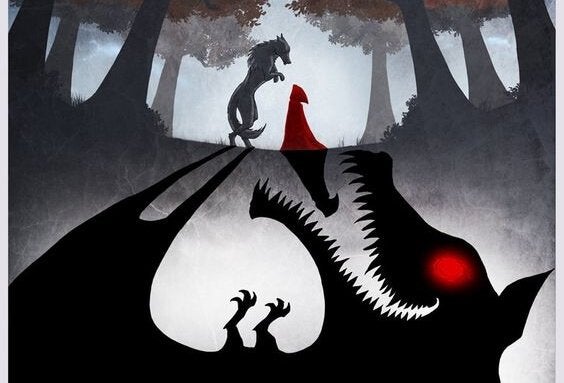Sometimes this happens, you suspect a person without knowing them in depth. It is like an inner voice whispering “run away”, like a cold wind that pushes us to go in the opposite direction guided by this instinct that, as a biological impulse, puts us on alert.
This kind of sensation that caresses the surface of the mind, almost like a cold finger touching the back, has little of the supernatural. It is also not an act of precognition, nor is it a “radar”. Wisdom acquired genetically by our ancestors. , is a simple survival mechanism.
Suspecting everything and everyone for fear of making mistakes again prevents us from living fully.
It is clear, however, that sometimes this inner voice fails, that the first impression is not always right and that there are those who sin too much for trusting them?Instinct. But, if there’s one thing our brain is prepared for is to anticipate the risks, and therefore, to avoid physical or psychological harm, that subtle echo is raised rooted in our subconscious that tells us something as simple as:?
Helena is 32 years old and accompanies her son and companion to the children’s cardiologist. Your child is 5 years old and has a heart condition that requires quarterly medical follow-up. Upon entering the appointment, a new doctor approaches and gradually begins to recognize the boy.
Helena soon feels a strange feeling when looking closer at the doctor, there’s something about him that she doesn’t like, the way she laughs is awkward, with a fake face, she also doesn’t like the way she plays with her son, the way she moves, the way she breathes, let alone the way her hair does : starched back.
During the 20 minutes of the consultation, this mother did not hear what the professional explained: she does not need it, so much so that when she says goodbye and leaves the office she tells her partner that they will change doctors immediately. will be repeated with a different person, with another cardiologist.
When her partner asks her why, she simply replies that he “doesn’t give confidence. “He doesn’t say anything else, he thinks it’s okay to have another opinion and he’s going to find another professional. However, Helena keeps to herself the real reason This mistrust Does this woman hide a small part of her life that she has not yet dared to reveal?
When she was 9 years old Helena’s parents separated and she lived with her mother and partner, two months after he started living together, this man with a wax smile and back-haired hair began abusing them, after a year her mother stopped doing so. leaving home, a dark, tearful nightmare he doesn’t want to remember, and that ended when he told his teachers everything that was going on.
Most likely, the child cardiologist who cared for Helena was an impeccable professional and an exceptional person, yet this woman’s brain was hostilely identified by a previous traumatic experience, which we reject, everything we avoid or disturb us, says a lot about ourselves: it defines us.
Our existential path is relentlessly incorporated into the unconscious and those brain structures associated with emotional memory, such as the hippocampus; however, humans have a brain region that controls each of our rapid judgments: the amygdala.
All these “visceral” reactions that we experience in our lives and that push us to adopt an escape or avoidance behavior are controlled by this gland located at the bottom of our temporal lobes, the actions we take on these bases are not rational and respond only to a relentless and automatic engine: the survival instinct.
One thing psychotherapists know very well is that the person who does not get carried away, kidnapped by the power of the amygdala, is someone who has developed a good self-control so as not to live more in fear. Does that mean we shouldn’t hear that inner voice that sometimes advises us to distrust something or someone?
“The only really valuable thing is intuition. -Albert Einstein-
Here are some things to think about:
If we do not like someone, these reasons are related to ourselves: perhaps because they remind us of someone we know in the past and whose pattern of behavior is repeated, perhaps because we feel that their values do not correspond to our own or perhaps because our own experience has allowed us to know who to trust and who we do not.
In any case, all we have to do is not let ourselves be dominated by constant fear and mistrust, every intelligent reaction has as a wonderful factor intuition and reflection.
Should we put that into practice?
Images courtesy of Forsa Ken (Red Riding Hood)

